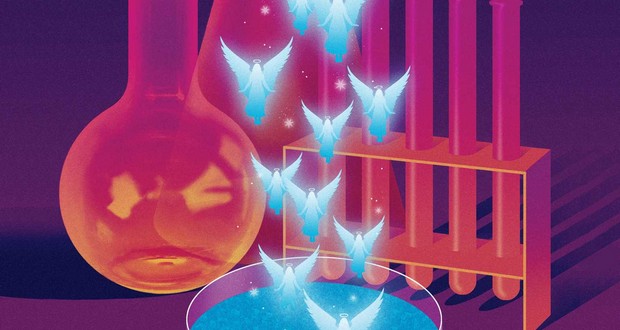1Serotonin

About 95% of serotonin in humans is produced in the gastrointestinal tract which is lined with a hundred million nerve cells, or neurons, that are influenced by bacteria. The inner workings of the digestive system don’t just help digest food, but also guide moods and emotions.
2Birthday candles

Blowing out birthday candles increases bacteria on the cake by 1,400%.
3Angel's Glow

During the American Civil War some soldier's wounds glowed blue. Soldiers whose wounds glowed had better chance of surviving, and so the glow was called “Angel’s Glow”. Now it is known that the luminescence comes from bacteria that produce antibiotics and that live in nematodes.
4Breast milk

Breast milk contains sugars which aren't digestible by human infants, but which serve as food for desirable gut bacteria.
5Poop pills

Scientists have invented ‘poop pills’, which are capsules that contain only bacteria from donors' poo which are used to treat gut infections. They have no scent, taste and are as effective as traditional fecal transplants while being much cheaper.
6Bathroom hand dryers

Bathroom hand dryers suck fecal bacteria from the room and spray it directly on your hands.
7Mitochondria

The mitochondria in our cells, which generate energy, are ancient bacteria that had a symbiotic relationship with other single-cell organisms and developed around 1.5 billion years ago.
Latest FactRepublic Video:
15 Most Controversial & Costly Blunders in History
8Lake Superior

Bacteria will feed on a decaying body underwater and create gas, which causes the body to float to the surface. However, Lake Superior's cold temperatures inhibit bacterial growth and the bodies tend to sink and never resurface.
9Clostridia

Researchers have identified a naturally occurring bacteria named Clostridia in the human gut that keeps people from developing food allergies. This beneficial gut bacteria diminished with frequent antibiotic use at a young age — making children more susceptible to food allergies later in life.
10Bacteria

Researchers have discovered bacteria that have naturally evolved to eat away at polyethylene terephthalate, the plastic known as PET or polyester. While studying the structure of an enzyme found in that bacteria, they accidentally created a “mutant enzyme” that can break down plastic within a few days.




